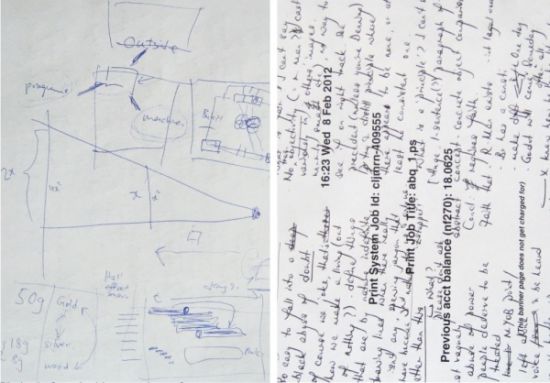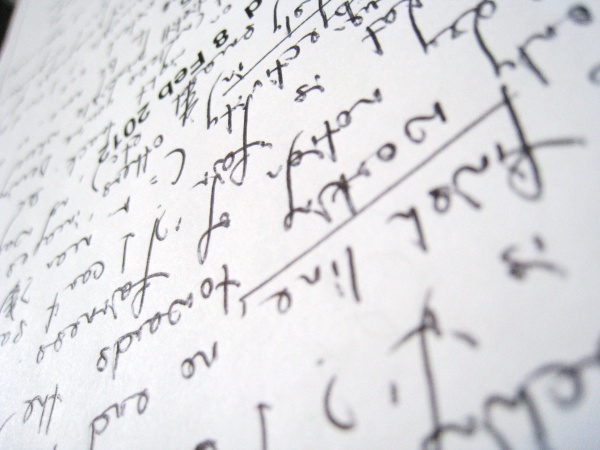In Samuel Beckett’s play Waiting For Godot, the two main characters wait endlessly for an elusive person named Godot, who may never turn up at all and whom they may not recognise even if he does. Timeless in more ways than one; a play about nothing, yet something in all that nothingness.
The engineering student is explaining to me about his project for the term. Each team must build a robot that can, on its own, travel a designated path, pick up an object, weigh it and categorise it accordingly, then move to deposit it at its correct place. He sketches a layout of the experiment, draws tables, illustrates ratios graphically: if this is 2x, then this is 4x². Before the assessment date the teams are allowed to test their creations once and fix it. The robot can fail at various points, either for being off-track or for dropping the object or for classifying it wrongly. I stand amazed.
“So,” he says, after a lengthy description. “How about law students?” At a loss, I thought to myself: Oh, where do I even begin.
There is no right or wrong, no definite way to test and see if things are working. Everything is an unknown x for which there is no real solution, numbers and equations regularly replaced by a vague overarching test of reasonableness. The engineer asks, what is ‘reasonable’? I can’t say.
There is no objective certainty, no method of checking that one is on the right track, moving in the right direction. Often we look at precedent (unless, perhaps, you’re Lord Denning) and struggle to distill a more or less consistent principle, as coherent as we can possibly manage, where there appears to be none. The engineer asks, what is ‘principle’? I can’t say.
There is no finish line, no end in sight; only a never-ending strive towards the hazy notion of achieving greater fairness. The engineer asks, what is ‘fair’? I can’t say.
I look at the rough diagram of the robot’s wheels. I look at a radio and a model of a bridge they built in first year. I look at the row of law textbooks on my shelf, each half a foot thick. How does a Human Right look like? How do I draw the Public Interest? How do I elaborate Justice in words or graphs or a song?
Law is full of inherent contradictions between conflicting ideas – the individual and the community, the judges and Parliament, between treating everyone equally and being flexibly sensitive to special individual circumstances. Law is pervaded by a characteristic general lack of certainty relative to many science-based subjects, for whether something is lawful or unlawful, reasonable or unreasonable, proportionate or disproportionate usually turns on a question of fact and a matter of degree. And then there is the eternal conundrum of incommensurability: if one person’s privacy is another person’s freedom of information, to which side does the scale tilt? It is a subject full of questions to which there is no answer.
It is all too easy to fall into a black abyss of doubt. People call it “reading law” because that’s what law students literally do. Yet for all that reading there is nothing material to see, nothing physical to touch; unlike the engineers I cannot hold a month’s work in my hands and switch it on and watch it move on its own. I can’t tell if its working. I keep reading, I keep keep reading on, not knowing for sure when or how all of it – the students’ studying, the judges’ judging, the lawyers’… uh… lawyering – would make a difference, if any at all.

But I persist, just because. Call it instinct, intuition, or M’Naghten insanity if you like. I like to believe that maybe, maybe, there are answers to some questions. Answers that we ‘just know’ and ‘goes without saying’ and, if you mention it to a hypothetical officious bystander, he would testily respond with a dismissive “oh, of course!” Perhaps certain things are certain, and remain as certain to us now as they used to be when we were five. People should be nice to other people. People should be heard if a decision affects them. People should be free to come together and walk and talk without having to peer over their shoulders in fear.
People should not hurt other people. People should not be beaten up or locked up or shut up (is there such a phrase as “gassed up”?) or left fed up with no recourse but to give up. And just very vaguely, as unclear as the River Cam in dense winter fog or KL in haze, we know that people deserve better than this. So we read law, in the belief that even though law cannot be the solution every time, it is the problem sometimes; by understsanding the law better, we are one step closer to solving the problem. “What is better, better than what, what is the -” Don’t ask.
The engineer is exasperated, understandably so. “Then how do you study this kind of thing?”
With faith, mate. With a lot of faith. Blind faith, if you must. Faith that Godot – my convenient shorthand for justice, fairness, democracy, civil liberties etc undefinable terms – will come, one day, someday, if we keep trying.
What is faith? I can’t say. But if I learnt anything from law school, it is that when you have trouble explaining something, there are two alternatives: either spout Latin, or quote a Law Lord.
So to the engineers who ask what studying law is all about, well, res ipsa loquitur! As per Lord Justice Stuart-Smith, use “the well-known elephant test. It is difficult to describe, but you know it when you see it.”
And to the law students out there who feel the same, let’s continue to believe it matters. Happy* reading.
*reasonably.

